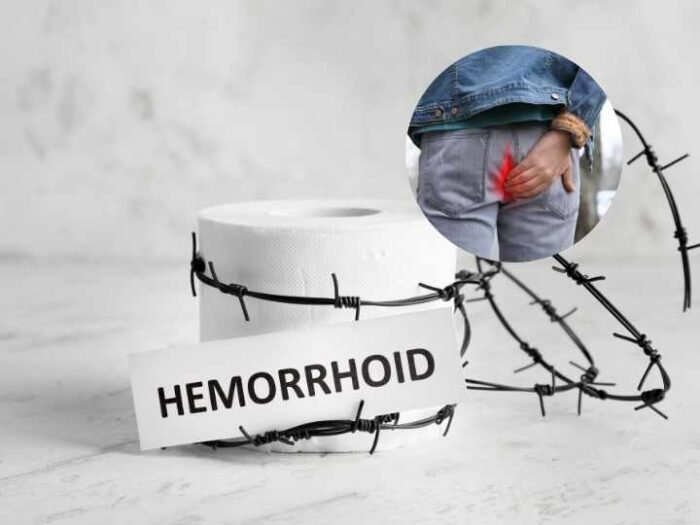John Doe
General SurgeonPretium saepe pariatur ornare cillum repudiandae inceptos iaculis cumque vulputate sequi neque quos exercitation aliquip interdum, veniam? Aute error, elit!


11% of the Indian population suffers from piles yet people know little about it. Many don’t even know which doctor to consult for piles & this article is here to shed light on the same.
Common yet greatly misinterpreted, a pile is a medical condition that many people know very little about. Due to this a lot of people get confused as to which doctor to consult for piles. In this blog, we will dive deep into what pile is all about and understand the array of medical professionals you can contact in case of an emergency.
Read more: Piles Starting Stage Treatment

Pile is a condition that leads to discomfort and pain during bowel movements. Piles are also known as hemorrhoids. Most of the piles are treated with home remedies, but if pain and discomfort persist for a longer period, then it can be a serious condition and would require immediate doctor consultation and hence the know-how of which doctor to consult for piles.
There are a range of doctors you can consult for piles. Every one of the following medical professionals will be able to diagnose piles and suggest the next suitable course of action. Here is a list of which doctors to consult for piles:
Most of the patients are comfortable with their family doctors and general physicians to whom they have been going for years. As this medical condition is sensitive, often the first point of contact for most medical concerns, including piles, is the general physician.
· General physician diagnoses the condition based on symptoms and physical examination of piles.
· Prescribes medications like painkillers, topical creams, and ointments that can ease patient’s pain and discomfort.
· Suggests lifestyle changes and dietary changes to relieve symptoms.
It is entirely the patient’s choice whether to consult a general physician. But if the condition persists the general physician can recommend specialized treatment options.
A bariatric surgeon is an expert in rectal, anal, and colon treatments. These doctors are primarily specialists in treating piles, particularly in advanced cases. When you think of which doctor to consult for piles – a bariatric surgeon is the first medical professional that comes to your mind. Along with bariatric weight loss surgeries, these doctors are also specialists in piles treatment.
· These doctors are experts in detailed diagnostic tests like a sigmoidoscopy or colonoscopy.
· Treat severe cases as a rubber band, ligation, sclerotherapy, or hemorrhoidectomy.
A gastroenterologist is a specialist in the digestive system and disorders related to the digestive system. Most of the complex cases of piles are handled by gastroenterologists. They might be consulted if:
· Piles are linked to chronic constipation or diarrhea.
· Symptoms that are severe like bleeding, and bulge formation around the anus might indicate gastrointestinal conditions.
Piles mostly affect the anal skin and thus in rare cases, a dermatologist is needed to treat it. There can be infections around the anus that can mimic piles and conditions similar to piles. In such cases, dermatologists can treat these infections or dermatitis.
If piles are serious in condition, they will require immediate operative treatments to cure, such as thrombosed or prolapsed hemorrhoids. A general surgeon specializing in piles surgery with experience in anorectal surgery can be involved.
In most patients, piles are asymptomatic, whereas in rare cases piles can be extremely painful and irritating. Consult a doctor if you experience:
· Severe pain and discomfort during bowel movements.
· Bleeding during bowel movements.
· Unusual discharge from the anus during physical exercises or bowel movements.
· Prolapsed hemorrhoids that don’t retract.
· No improvement despite over-the-counter treatment.
Such cases indicate that piles can worsen if not treated immediately, and requires immediate doctor’s consultation.
If your pain and discomfort persist, then you should be ready to visit a doctor at the earliest and follow these steps:
1. Maintain a history of medications prescribed by the doctor if you have already consulted any.
2. Keep a record of the signs and symptoms, including their duration and severity.
3. Maintain a record of the duration from which piles have started and worsened.
4. Note the dietary or lifestyle changes that have worsened or improved symptoms.
5. Share medical history with the doctor if you have any chronic disorder like asthma, chronic constipation, or any liver condition.
Conclusion
While it’s observed that mild piles are often managed at home with home remedies, persistent pain and discomfort can disturb individual mental and physical health. In such conditions, one should consult a doctor. We hope this article helped clear the concern of which doctor to consult for piles. A timely consultation with the appropriate specialist can prevent complications and provide relief from pain and discomfort. Make sure to stay safe and get yourself checked whenever need be.
You can start by visiting a General Practitioner (GP) or family doctor. They can evaluate your symptoms and recommend the next steps or refer you to a specialist if necessary.
Mild piles may resolve with lifestyle changes, such as a high-fiber diet, staying hydrated, and avoiding prolonged sitting. Severe or recurring cases, however, often require medical intervention.
Not all cases of piles require surgery. Mild to moderate cases are often treated with lifestyle changes, medications, or minimally invasive procedures. Surgery may be needed for severe cases, such as thrombosed or prolapsed piles.